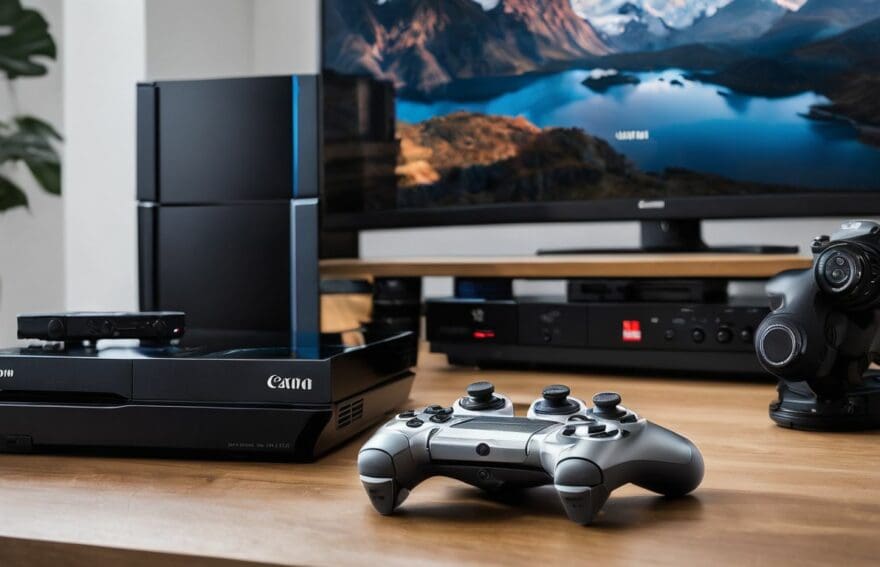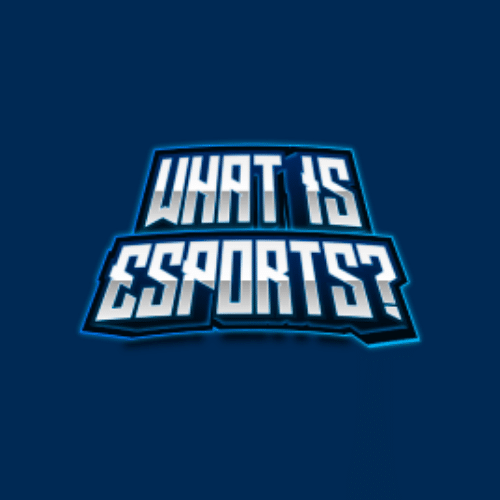The Role of Game Developers in Fostering a Healthy FGC

Updated On: November 29, 2025 by 
As avid enthusiasts of the fight game scene, we’ve all experienced the unwelcome nip of a toxic match—those moments that can sour even the best of virtual battles. It’s a shared struggle within our community, one where the shadow of negativity looms over what should be friendly yet fierce competition.
With an eye-opening 74% of online gamers running afoul of harassment in some form, it’s clear there’s much to tackle on this front.
The essence of this article is to explore actionable approaches that game developers are taking to foster environments rooted in mutual respect and camaraderie across the Fighting Game Community (FGC).
Rest assured, you’re about to gain valuable insights into maintaining our digital arenas as places where sportsmanship is king and every exchange is laced with fairness. Continue reading for we’re about to press start on fostering positive change!
Understanding the Power of Gaming Communities
Gaming communities have the power to build connections and foster inclusion, but they also need to address toxic behavior and embrace diversity. This understanding is crucial for game developers in creating a healthy FGC.
Building connections and fostering inclusion
We recognise the tremendous impact we can have on building relationships within our gaming communities. By engaging with players and integrating their insights, we mold our games into platforms that not only entertain but also unite individuals from various backgrounds.
We work diligently to ensure everyone feels represented and included in the exciting digital world of gaming.
Our commitment extends to creating spaces where collaboration thrives and toxic behaviour is actively challenged. Through thoughtful game design and ongoing dialogue with our community, we support a culture of respect where all gamers, regardless of skill level or identity development, find a sense of belonging.
Our efforts are fundamental in cultivating an environment that values empowerment in gaming, fostering connections that extend beyond the virtual realm.
Addressing toxic behaviour
Promoting a healthy gaming environment involves addressing toxic behavior within the FGC. Game developers actively listen to player feedback and collaborate with community leaders to identify and eliminate toxic elements in gaming communities.
They prioritise creating inclusive and diverse content that fosters respect and sportsmanship among players, ensuring a positive and supportive atmosphere for all participants. By proactively addressing toxic behaviour, game developers play a crucial role in promoting a welcoming and safe environment within the FGC, ultimately contributing to the overall health and growth of the gaming community.
Embracing diversity and inclusion
Game developers play a pivotal role in embracing diversity and inclusion within the Fighting Game Community (FGC). By understanding the unique needs and preferences of players from diverse backgrounds, developers can create games that cater to a wide range of individuals.
They actively seek out opportunities to represent different cultures, genders, and abilities within their game content, fostering an inclusive environment where all players feel represented and valued.
This commitment to diversity not only enriches the gaming experience but also promotes a sense of belonging for every member of the FGC.
Developers continuously engage with feedback from the FGC community to ensure that their games are reflective of diverse perspectives. By incorporating this input into game development processes, they actively work towards creating an inclusive space where everyone feels welcome to participate and thrive.
The Role of Developers and Community Managers
Developers and community managers play a crucial role in creating a positive and welcoming environment within the gaming community. They are responsible for promoting healthy interactions, addressing toxic behaviour, and encouraging player feedback and engagement.
Creating a positive and welcoming community environment
Game developers actively foster a positive and inclusive community through constant engagement with the FGC. We understand the importance of creating a welcoming space where players can thrive and connect.
By promoting diverse representation, addressing toxic behaviour, and encouraging open dialogue, we aim to ensure that every member of the FGC feels valued and supported.
Through our continuous efforts to listen, adapt, and innovate based on player feedback, we strive to maintain an environment that prioritises respect and inclusivity for all individuals in the gaming community.
Promoting healthy interactions
Developers actively engage with the FGC to create a positive and inclusive space within the gaming community. They implement features that encourage respectful competition while fostering a camaraderie among players.
By prioritising player feedback, developers ensure that game mechanics promote healthy interactions and sportsmanship, contributing to the overall well-being of the FGC.
Inclusivity is at the forefront of game development, with efforts made to represent diverse cultures and backgrounds within games. Developers collaborate closely with tournament organisers and community leaders to support initiatives that promote diversity and inclusion in gaming events, creating an environment where all players feel valued and respected.
Encouraging player feedback and engagement
Developers promote healthy interactions to create a positive gaming environment. They actively seek and value player feedback and engagement, recognising its importance for the growth of the FGC. Here’s how developers encourage feedback and engagement:
- Conducting regular surveys and polls to gather player insights on game mechanics, character balance, and overall gameplay experience.
- Hosting community forums and Q&A sessions where players can directly interact with developers to voice their opinions and concerns.
- Integrating in-game feedback tools that allow players to provide real-time input on their experiences and suggestions for improvements.
- Organising focus groups or beta testing programmes to involve dedicated players in the game development process, fostering a sense of ownership within the community.
- Actively engaging with social media platforms to maintain an open channel for communication with the FGC, addressing queries and discussing new ideas.
The Importance of Social Features in Modern Games
Social features in modern games play a crucial role in enhancing player experience and building a sense of community within the game. To understand more about how these features can shape the gaming landscape, continue reading below!
Enhancing player experience
Game developers are dedicated to enhancing player experience within the FGC by incorporating engaging features and mechanics into their games. They strive to create immersive gameplay that captivates players, offering diverse character choices and dynamic environments.
By continuously seeking innovative ways to improve the gaming experience, developers contribute to the overall growth and sustainability of the FGC community. Listening to player feedback is crucial, as it enables developers to make continuous improvements that resonate with a wide range of players in the fighting game community.
Through thoughtful design and ongoing updates, they aim to provide an enriching gaming experience that resonates with passionate gamers while also appealing to novice players exploring the vibrant world of competitive gaming.
In addition, communities can be positively influenced by game developers who actively engage with tournament organisers and community leaders. Providing support for events such as local tournaments or online competitions contributes significantly towards building a sense of camaraderie within the FGC.
Building a sense of community within the game
Developers enhance the gaming experience by incorporating social features that enable players to connect and build meaningful relationships. These features include in-game chat, team-based modes, and community hubs where players can share experiences and strategies.
By promoting collaboration and communication, developers create a sense of belonging for all members of the community.
Engaging with player feedback is crucial in fostering a supportive environment within the game. Developers actively seek input from the community on various aspects such as game mechanics, character design, and overall gameplay experience.
The Evolution of Gaming Technology
Gaming technology has evolved rapidly, and it’s important for developers to stay ahead of the curve in market research, conceptualisation, graphics, audio, and programming. Find out more about how game developers are shaping the future of gaming by fostering a healthy FGC community.
Importance of market research and audience analysis
Understanding the preferences and behaviours of the gaming community is vital for game developers. Market research allows us to identify trends, player demographics, and emerging needs within the Fighting Game Community (FGC).
By conducting thorough audience analysis, we can create games that resonate with a diverse player base and cater to their interests. This information guides our decisions on game mechanics, character design, and storylines, ensuring that our games align with the desires of passionate gamers while also welcoming novice players into the FGC fold.
Our commitment to market research and audience analysis enables us to deliver engaging experiences that meet the evolving expectations of the gaming community.
Through data-driven insights from market research and audience analysis, we gain a deeper understanding of what resonates with FGC members. These findings inform our development process, allowing us to craft content that reflects diversity and inclusivity in both gameplay and narrative elements.
Conceptualisation and storyboarding
After conducting thorough market research and analysing the audience’s gaming preferences, game developers embark on the critical phase of conceptualisation and storyboarding. During this stage, key ideas are brainstormed and visualised to lay the foundation for an engaging gaming experience.
These processes involve sketching out character designs, mapping game environments, crafting compelling narratives, and outlining gameplay mechanics. Game developers leverage their creativity to bring the envisioned concepts to life through detailed storyboards that serve as a roadmap for every aspect of the game development process.
Utilising player feedback and industry insights gathered during audience analysis, game developers refine their conceptual ideas in alignment with the values and expectations of the fighting game community (FGC).
Role of graphics, audio, and programming
After conceptualising and storyboarding the game, game developers focus on bringing the visuals, audio, and programming to life. This involves creating stunning graphics that enhance the player’s immersive experience, including lifelike characters and captivating environments. Additionally, developers craft dynamic audio that immerses players in the game’s world, from epic soundtracks to subtle environmental sounds. Moreover, programming is crucial for ensuring smooth gameplay mechanics and responsive controls, providing a seamless gaming experience.
- Graphic Design: Game developers utilise cutting-edge technology to create visually stunning games that captivate players’ imaginations and bring game worlds to life.
- Audio Engineering: The incorporation of high-quality sound effects and music enhances the overall gaming experience by creating an immersive atmosphere for players.
- Programming Expertise: Skilled programmers work behind the scenes to ensure that games run smoothly and deliver seamless interactions between players and the game environment.
- Visual Effects: Innovative use of visual effects such as particle systems, shaders, and lighting techniques contribute to creating visually breathtaking gaming experiences.
- Sound Design: Attention to detail in sound design adds depth and realism to gameplay elements such as combat sequences, environmental ambiance, and character interactions.
- User Interface Design: Intuitive user interface elements are meticulously designed for easy navigation within the game while maintaining a visually appealing aesthetic.
- Animation: An expertly crafted animation brings characters and environments to life, enhancing storytelling and immersing players in engaging narratives.
The Impact of Gaming on Society
Gaming has become a cultural phenomenon, reflecting societal trends and values. It has also contributed to economic and community development, with esports and gaming tournaments gaining widespread popularity.
The future of gaming and the FGC is an exciting prospect with endless possibilities for growth and innovation.
Cultural phenomena and reflection
Game developers have a significant impact on cultural phenomena and reflection within the gaming community. They influence societal values, norms, and behaviors through the themes, characters, and storylines in their games.
By incorporating diverse representations and addressing pertinent social issues, game developers shape the cultural landscape of the Fighting Game Community (FGC). Their thoughtful storytelling and character design transcend entertainment, provoking meaningful discussions about inclusion, representation, and societal challenges.
Developers play an influential role in reflecting real-world diversity within gaming environments. The integration of various cultures into games fosters a sense of belonging for players from different backgrounds while promoting empathy and understanding among the gaming community at large.
Economic and community development
Moving from the cultural impact of gaming to economic and community development, we see how game developers contribute significantly to the growth and sustainability of the Fighting Game Community (FGC).
Through their creations, they provide platforms for tournaments and events that stimulate local economies. This helps in creating job opportunities within communities while also promoting social interaction and engagement among gamers.
Furthermore, their input into game design enhances community building by providing a space for players to come together, share experiences, and form lasting connections. This active role serves as a catalyst for economic growth within FGC hubs.
The collaborative efforts between game developers and FGC leaders are pivotal in creating sustainable infrastructures that support local businesses through gaming events. The emphasis on inclusive content not only broadens the player base but also fosters diversity within communities by celebrating different cultures and perspectives.
The future of gaming and the FGC
Game developers are continuously innovating to shape the future of gaming and the FGC. They adopt cutting-edge technology, harnessing powerful graphics, audio, and programming to create immersive experiences.
By conducting thorough market research and analysis, they tailor games to meet evolving player demands. As cultural phenomena reflect in gaming content, developers play a pivotal role in driving economic and community development within the FGC.
Collaboration between game developers and the FGC is integral for its growth and sustainability. Developers actively engage with community feedback, enabling continuous improvements that resonate with diverse players.
Conclusion
In conclusion, game developers play a crucial role in fostering a healthy FGC. They actively listen to feedback from the community and strive to create inclusive and diverse content.
By collaborating with tournament organisers and providing resources, they contribute to the overall health and growth of the FGC community. Their continuous efforts aim to maintain a positive and supportive environment within the FGC while seeking ways to innovate and improve the gaming experience for all players.
FAQs
1. What do game developers do to support a healthy FGC?
Game developers play a crucial role in fostering a positive gaming culture by offering player support and creating community connections within the Fighting Game Community (FGC).
2. How can video game industry ethics improve the FGC?
By focusing on ethics in the video game industry, developers can avoid toxic work environments and contribute positively to both gaming studios and communities.
3. Are content providers important for a healthy gaming culture?
Yes, content providers are key as they supply engaging material that strengthens community bonds and enriches the videogame industry.
4. Can game development services help with player issues?
Certainly! Game development services actively work to address player concerns which helps maintain an enjoyable environment for everyone involved in the FGC.
5. Why is it important for video game developers to connect with their players?
Video game developers need to establish strong relationships with players because it encourages mutual respect and helps build a safer, respectful, and healthier gaming atmosphere.


